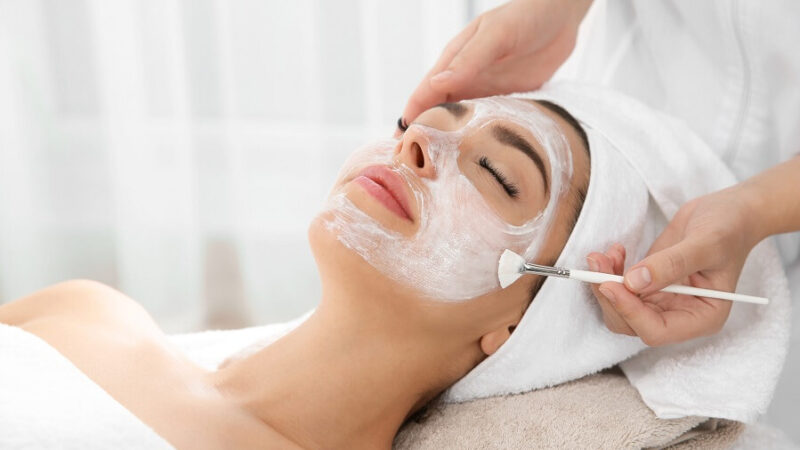Are lip fillers really worth it? Top 6 things you need to know

Lip fillers are a popular cosmetic procedure that can transform your lips in as little as 30 minutes. You can see the visible differences if you check out the lip fillers before and after pictures of the people undergoing the treatment. But with so many injectable lip products on the market, it’s easy to get confused. To help you decide whether lip fillers are worth it or not, we’ve put together six important things you need to know about this procedure:
- Hyaluronic acid is a naturally occurring substance in your skin.
Hyaluronic acid is a naturally occurring substance in your skin. It gives you that youthful, dewy glow and helps keep the skin moisturised and hydrated. Our bodies produce less hyaluronic acid as we age, leading to wrinkles and sagging skin.
2. Hyaluronic acid fillers can last anywhere from six months to two years
Hyaluronic acid fillers can last anywhere from six months to two years. This depends on the type of hyaluronic acid used, the amount injected into your lips and how much time has passed since your procedure. Hyaluronic acid fillers may last as long as 18 months in some people, while others may only get 6-12 months out of them before they are redone. If you’ve had an injectable filler done recently and are curious about how long it will last, here’s what you need to know:
- 6 months – 1 year: Hyaluronic Acid Fillers typically last from six months to one year. The majority of people fall into this category.
- 1 year – 2 years (18+ months): Some people have found that their results lasted up to two years after their initial treatment.
That is how your body breaks down the substance. This variation in results duration depends on the type of filler used as well as on individual differences. Talk with our aesthetic practitioner At Cosmedocs, Aesthetic skin clinic in London about whether or not this would work for you. This will enable you to make a better-informed decision regarding your treatment.
3. You’ll need an aesthetic practitioner consultation before the procedure is done.
Before you get any cosmetic procedure done, it’s essential to ensure it’s safe for you. This is especially true with lip fillers because many people are allergic to the ingredients in dermal fillers. If you have an allergy, the filler might not work for you and could cause infection or scarring. So, one thing that practitioners do with all of their people is a consultation—a thorough checkup and evaluation of all medical conditions that might interfere with the procedure.
The aesthetic practitioner will ask questions about your medical history and do a physical exam to determine if there are any preexisting conditions (such as dry lips). The aesthetic practitioner will also examine your skin tone to see if your lips are naturally thin or have uneven pigmentation issues that would make them look better after some plumping up.
Once they feel comfortable moving forward with this process, they’ll discuss which type of product would best suit their needs based on what was discussed during their initial meeting. You can also request your injector to show some lip fillers before and after pictures to get an idea of how lips may change after the treatment.
You may experience some pain about half an hour after the procedure.
You may experience some pain about half an hour after the procedure. The problem is that this isn’t a sign that something went wrong. The pain is caused by the injection, not the filler itself.
The needle used to inject lip fillers (and any other cosmetic injectable) can cause discomfort, but it’s temporary and will go away in a few days. If you’re expecting a sharp pinprick of pain like an injection, don’t worry—it’s much less painful than that!
4. There’s some risk of bruising and swelling after getting lip injections.
If you’re considering getting lip fillers, you must be aware of the risk of bruising and swelling after the injections. This is common, but it can last up to a week. Luckily, there are ways to minimise this: you can check out lip fillers before and after images on Google to see the side effects that may occur after treatment.
- Ask your aesthetic practitioner if they have numbing cream available. Ask them when you should come in so they can numb your lips before starting the procedure.
- Use a cold compress or ice pack for 24 hours following the procedure. If possible, use them both—it will help reduce swelling faster than just one or the other would alone!
5. The total cost varies widely depending on where you’re getting the procedure and how much filler is used.
Generally, you can expect to pay between £500 and £1,000 for a full-mouth treatment (both upper and lower lips). The average lip injections cost can be £500 to £600 per treatment. When you select the injector for the treatment, be sure their license is current—and that they haven’t been barred from practising in any cities or countries.
Research each practitioner’s credentials thoroughly before making an appointment for any cosmetic procedure! It’s also wise to ask about any potential risks or complications associated with the procedure and how insurance companies will address those if something goes wrong during the treatment. Also, request lip fillers before and after pictures of patients they have treated during their practice.
6. Lip fillers are an increasingly popular cosmetic procedure, but it’s important to get all the facts first.
Lip augmentation is a cosmetic procedure that involves injecting natural or synthetic materials into the lips to enhance their size and shape. Many options are available, from hyaluronic acid fillers like Juvéderm and Restylane to fat transfer injections using lip tissue harvested from other parts of your body.
Injecting these substances into your lips can cause swelling, bruising, and inflammation for 24 hours after treatment, so it’s essential to ensure you’re getting the best possible results before committing yourself to a treatment plan.
Conclusion
In summary, lip fillers can be a great way to enhance your lips if you want something subtle or dramatic. But it’s important to discuss the risks with your aesthetic practitioner, and considering other options before going under the needle is important. The cost and results of this type of procedure vary widely depending on where you get it done and which filler is used. Some people report having wonderful experiences, while others say they wouldn’t recommend it due to bad reactions or lack of results after spending lots of money on treatment that didn’t last long enough. It all comes down to what works best for each person!






